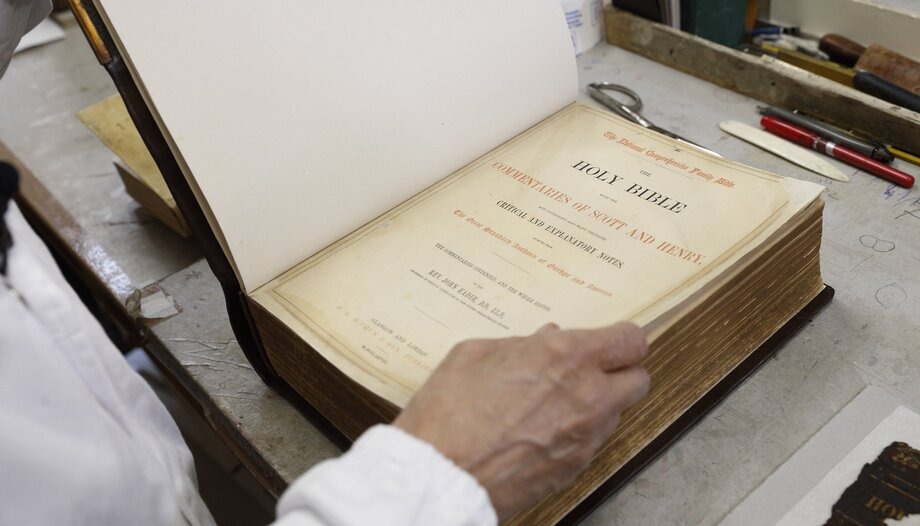With Palm Sunday of the Lord's Passion we reach the end of our journey. We are at the portico of Holy Week. The Church commemorates with the Palm Sunday procession the entry of Jesus into Jerusalem. Paradoxically, he will be acclaimed as King and Messiah only to be condemned to death on the Cross.
As Benedict XVI said in celebrating this day: "In the Palm Sunday procession we join the multitude of the disciples who, with great joy, accompany the Lord in his entry into Jerusalem". "This joy at the beginning is also an expression of our "yes" to Jesus and of our readiness to go with him wherever he leads us." Moreover, "it wants to be an image of something more profound, an image of the fact that, together with Jesus, we begin the pilgrimageby the high road to the living God".
Once the procession with the branches and the solemn entrance into the church has taken place, the Collect opens directly the Eucharistic celebration. This prayer, simple in structure but notoriously long, has remained practically unchanged through the centuries up to the present day. Missal of Paul VI. Its anonymous editor could have been inspired by some texts of St. Augustine where terms such as exemplum, documéntum y humilitas are also related.
Almighty and eternal God, who made our Savior incarnate and endured the Cross so that we might imitate his example of humility, grant us, graciously, to learn the teachings of the Passion and to share in the glorious Resurrection. Omnípotens sempitérne Deus, qui humano géneri, ad imitándum humilitátis exémplum, Salvatórem Nostrum carnem súmere, et crucem subíre fecísti, concéde propítius,ut et patiéntiae ipsíus habére documéntaet resurrectiónis consórtia mereámur.
The Father's almighty love
The invocation Omnípotens sempitérne Deus, as such, is repeated in 14 Sunday collects. But recourse to divine omnipotence will appear several hundred times in the Missal, being one of the most frequently mentioned attributes of God. Although it pertains equally to the three divine Persons, in the Gloriain the Credo and in many prefaces omnipotence usually refers especially to the Father. As the CatechismGod is the Father almighty. His fatherhood and his power are mutually illuminating. He shows, in fact, his paternal omnipotence by the way he cares for our needs; by the filial adoption he gives us; finally, by his infinite mercy, for he shows his power in the highest degree by freely forgiving sins" (n. 270).
The Father forgives our sins by sending us his only begotten Son. The anamnesis reminds us of two high points of our Savior's existence: taking our flesh (carnem súmere) and suffer the Cross (crucem subíre), the Incarnation and the Passion. Two moments closely related to each other and to our salvation. We explicitly affirm in our prayer that Christ accomplishes everything in favor of the human race, and then we will solemnly profess it again in the Credofor us men and for our salvation".
The Son's example of humility
Redemption is objective and universal, but it needs to be embraced by everyone. The way to do this is to imitate Jesus, who freely embraces humiliation to the extreme. Hence the importance of learning the teachings (documenta) of his Passion, as we ask in prayer. As St. Thomas Aquinas said: "The Passion of Christ is enough to serve as a guide and model for our whole life, for anyone who wants to lead a perfect life need do nothing other than despise what Christ despised on the cross and desire what Christ desired. In the cross we find the example of all the virtues". Thus, the sin of pride of the old Adam is healed in the love, obedience, patience and humility of Christ, the new Adam. The Palm Sunday Collect concludes by asking for our participation in the glorious resurrection (con-sors means to suffer the same fate, the same destiny), the high point of the whole liturgical year. It is St. Paul who teaches that through baptism we die with Christ and are buried with him, in order to rise with him to the new life proper to those who have died to sin and now live for God (cf. Rom 6:3-11). And so we end our Lenten journey, ready to participate in the Easter celebration of this new life given to us by Christ, with him and in him.
Priest from Peru. Liturgist.








